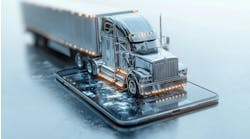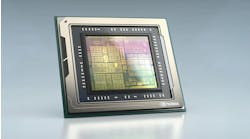I attended the Green Truck Show in Indianapolis last month, and am sitting at the Green Transportation Summit in Portland right now. Soon, the Alternative Clean Transportation (ACT Expo) will be held in Long Beach.
Two months ago I talked at the Technology and Maintenance Council about technologies far on the horizon for our industry and the hype cycle. The hype cycle deals with the hype in the trade press about something that gets some initial traction for buyers on the bleeding edge. As it continues to grow, some sort of problem or crisis develops and the hype declines. But, good things don't take a challenge sitting down. So, the good things come back and grow and grow. I often use Automated Mechanical Transmissions, which I worked on, as an example. In the early 2000s they hit problems with wires, connectors, and software. The early adoption was slowed significantly. But, today, they are well over 50% penetration at all OEMs, with some reporting well in excess of 70% penetration.
So, what will we see in 2027, a decade from now, when the current fuel economy and emissions regulations are in full effect? What will we do when California pushes for even lower NOx requirements. Don't put your money or your hope in President Trump and EPA Administrator Pruitt changing the regulations. They agreed to 're-look' at the President Obama declaration that the 2025 light duty vehicle regulations are okay and stand. Chances are quite good, when all is said and done, the new administration will also say the rules are okay. Either way, they did NOT say anything about the Medium/Heavy duty regulations that go out through 2027. So, plan on them staying put.
As I look back at how we met the regulations previously, it's been a combination of on-board technology and off-board changes in fuel and oils. According to the EPA, future on-board technology will include more aerodynamics, better engine/transmission integration, low rolling resistance tires, and some electrification. In my personal opinion, the on-board technology improvements can be improved with off-board technology, as it has in the past.
Some of you who know me might think that I'm going to talk about connected vehicles, telematics, and all that electronic stuff. You would be wrong. Technology does not just mean computers and communications. Technology is everywhere and in everything.
Twice in the past, we reduced the sulfur content of diesel fuel in order to meet emissions regulations. In 2010 we added diesel emissions fluid (DEF) to be able to meet the 2010 requirements. Right now, we are making the transition to CK-4 and FA-4 oils for the engines. Therefore, I submit, it is proven that making significant changes in the off-board fuels and liquids are important to improving the fuel economy and emissions of our vehicles. We've tried charging the vehicles with electricity. We've used compressed natural gas, liquid natural gas, and propane gas. Dimethly ether has been proposed. All of these have gone through their own hype cycle.
So, what is the current hype and can it succeed where the other approaches have failed to "cross the chasm" discussed for startup ventures? Bio-diesel and green diesel, or renewable diesel, or renewable hydrogen diesel is awfully promising. We've seen some previous troubles in Minnesota and other cold climes with B20 blends of biodiesel. But, then again, DEF freezes at a pretty high temperature and can cause problems, yet we now have it in production for 7 years. I think we will know if this hype will survive if the engine manufacturers get together in the Truck and Engine Manufacturers Association and put forth they need a change to blended diesel in order to make the future regulations. They did it with low sulfur diesel, ultra-low sulfur diesel, DEF, and the new oils. Let's all watch what the engine manufacturers and OEMs start saying in the next 3-4 years regarding what they want to see in 2027. If they start saying blended diesel is better and should be investigated, then we will all know where they are headed.
My prediction, in 2027, engines will not just be new, but will be "re-new" and use renewable, cleaner fuels.


